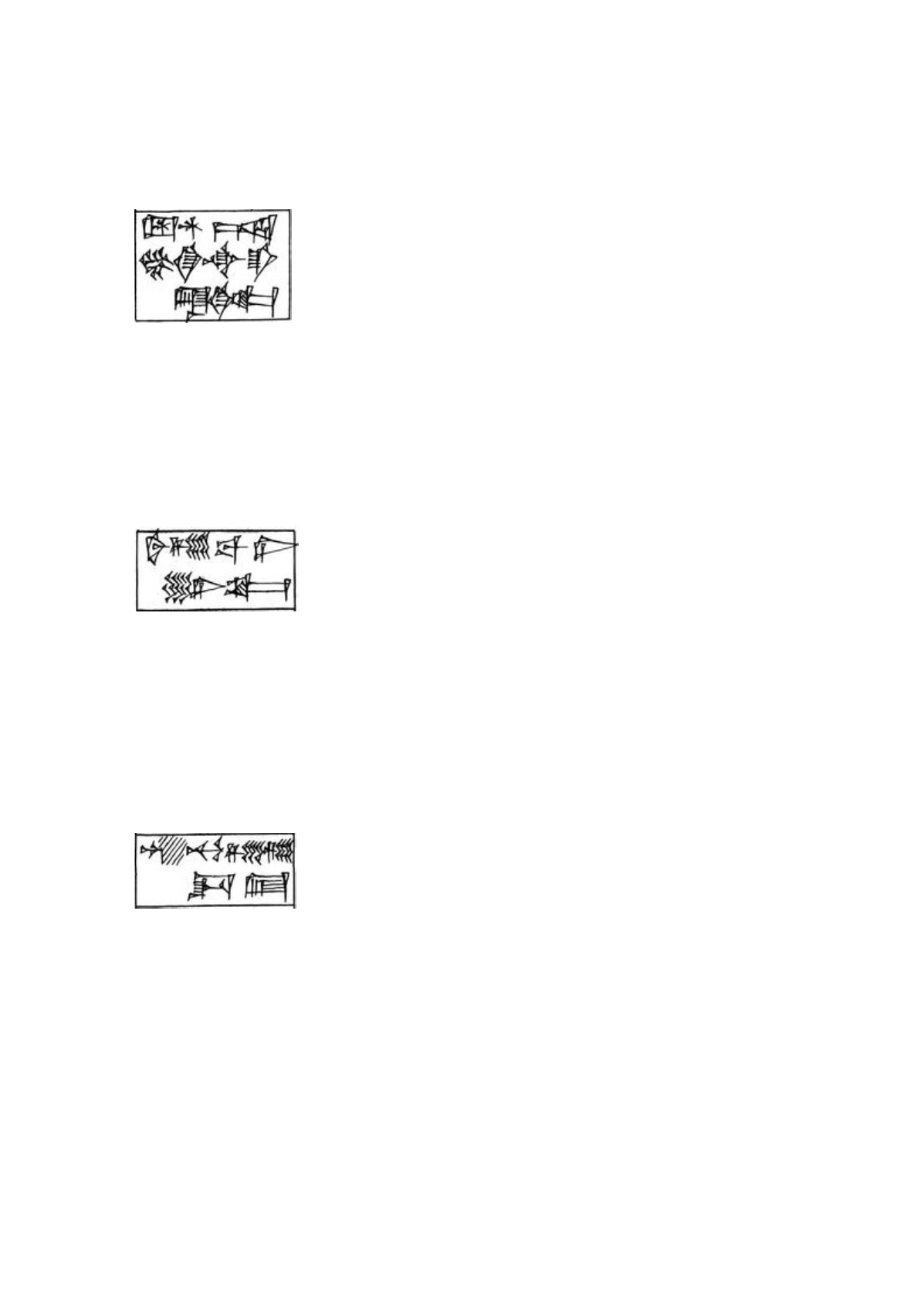

425
Gudea di Lagash – La costruzione del tempio di Ninjirsu - Cilindro B
seek; to find; to declare; to swear, take an oath; to choose out of (with ablative prefix) (pa
3
-de
3
in sing.
marû
)” (SL)
B XIII.7 – 1114
ama d.nanše sig
4
ki
lagaš.ki.ka[ama
d
Nanše].e [sig
4
ki Lagaš
ki
].ak.a
la madre Nanshe sul ‘mattone’ del paese di Lagash
[ama
d
Nanše].e : col marker dell’ergativo, contratto con la terminazione ‘e’ di nanše (GSG1.82; cfr. A
VII.11, dove non c’è la contrazione); per ama, vedi A I.29; per
d
Nanše, vedi A II.2
[sig
4
ki Lagaš
ki
].ak.a : “auf den ‘Ziegel’ des Ortes Lagaš”, col marker del genitivo (GSG1.88) e del locativo
(GSG2.108)
ki Lagaš
ki
: vedi A VI.15, XII.23, XIV.1, XIX.1, B I.21, V.9, 18, 22, VII.10, XI.22 (GSG2.17)
B XIII.8 – 1115
mi
2
zid ba.ni.in.dug
4
mi
2
zid ba.ni.n.dug
4
se ne prese cura attentamente;
“(den ‘ziegel’ des Ortes Lagaš) hat sie getreulich gehegt” (GSG2.108; GSG1.162)
mi…dug
4
/du
11
/e : “to praise; to handle gently, caress, rub; to take great care with (often with -ni-) ('female' +
'to speak, do')” (SL); “prier, supplier; caresser; prendre soin de; désirer” (PLS.39); mi
2
.zi.du 11
“nach
rechter Frauenart behandeln = recht hegen, getreulich pflegen” (GSG1.128). Il DP .ni cross.-ref. il
precedente marker del locativo (GSG1.206). Il senso è che Nanshe se ne prese cura tra gli edifici
(costruiti in mattone: sig
4
“sun-dried unbaked brick; brickwork; wall” (SL)) di Lagash.
B XIII.9 – 1116
[
dijir
]
numun
zid.zid.da.ke 4[dijir numun zid.zid].ak.e
il dio della progenie più affidabile
[…].ak.e : col marker del genitivo e dell’ergativo (GSG1.85). Il raddoppiamento dell’aggettivo attributivo
zid indica, per Falkenstein, pluralità: “rechter Samen” (GSG1.72), o totalità “der Gott allen rechten
Samens” (GSG1.85); preferisco però vedere una forma di superlativo. Si potrebbe dare alla frase anche
un valore enfatico: “Ma è il dio … che …”
















